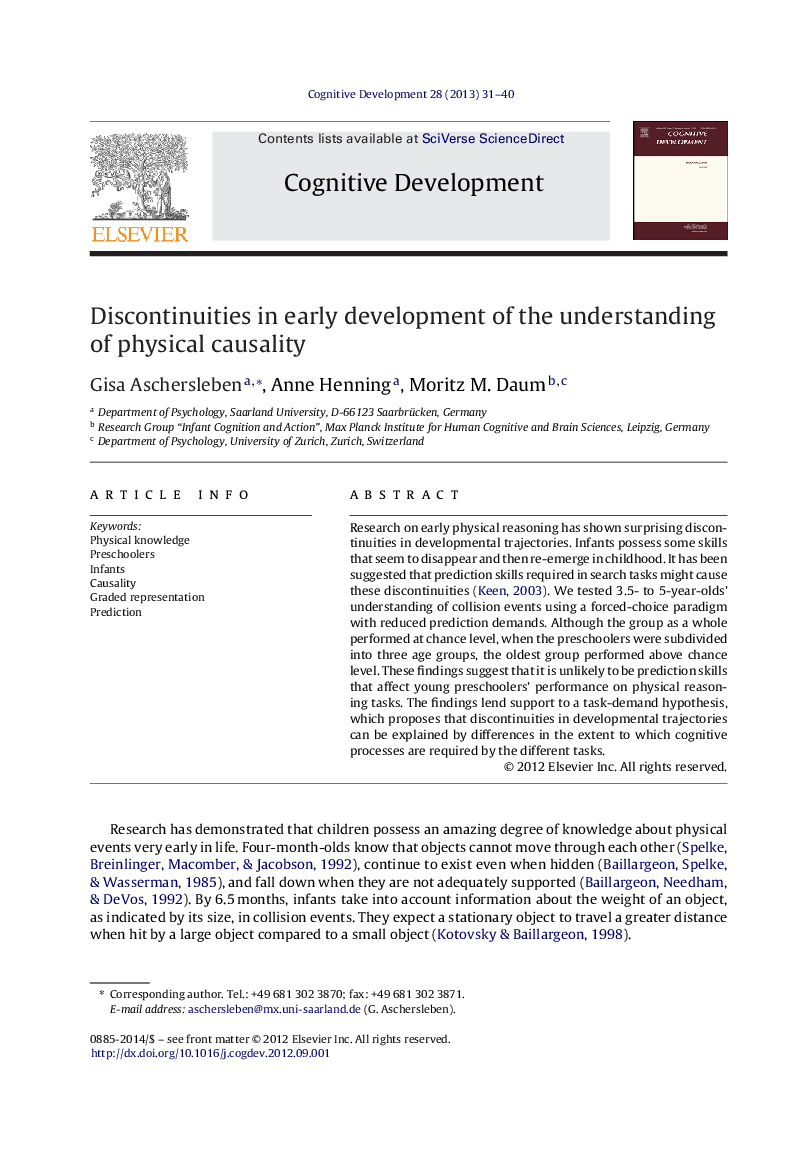| Article ID | Journal | Published Year | Pages | File Type |
|---|---|---|---|---|
| 916547 | Cognitive Development | 2013 | 10 Pages |
Research on early physical reasoning has shown surprising discontinuities in developmental trajectories. Infants possess some skills that seem to disappear and then re-emerge in childhood. It has been suggested that prediction skills required in search tasks might cause these discontinuities (Keen, 2003). We tested 3.5- to 5-year-olds’ understanding of collision events using a forced-choice paradigm with reduced prediction demands. Although the group as a whole performed at chance level, when the preschoolers were subdivided into three age groups, the oldest group performed above chance level. These findings suggest that it is unlikely to be prediction skills that affect young preschoolers’ performance on physical reasoning tasks. The findings lend support to a task-demand hypothesis, which proposes that discontinuities in developmental trajectories can be explained by differences in the extent to which cognitive processes are required by the different tasks.
► Children's understanding of collision events was examined using a forced choice paradigm. ► Only children in the oldest group (4;7 years) were reliably better than chance. ► Findings lend support to a task demand hypothesis rather than a prediction hypothesis.
